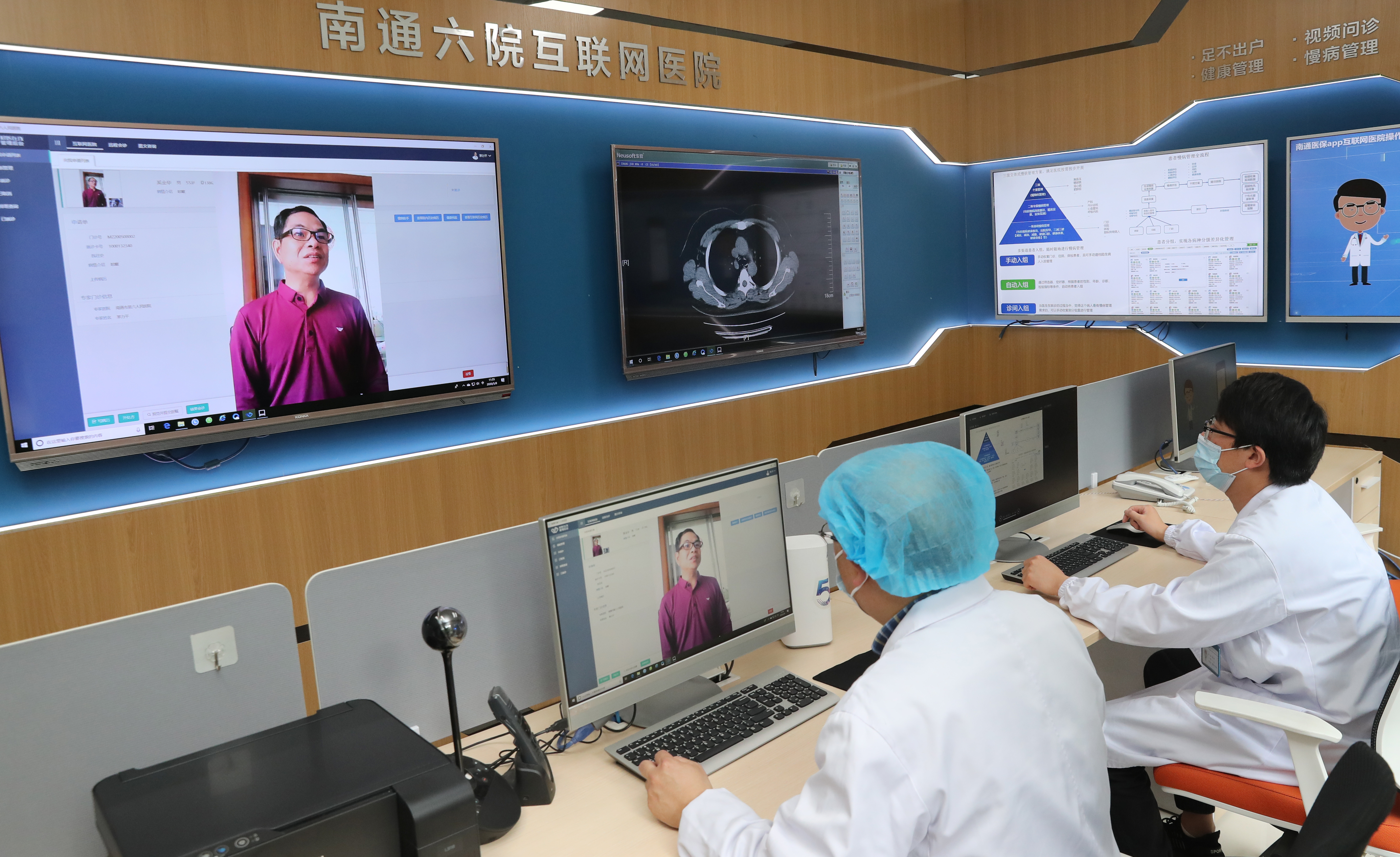New impetus for online healthcare


Policy support, COVID-19 prevention efforts buoy development of sector
Changes in the way healthcare is delivered during the COVID-19 outbreak, together with policies the Chinese government has taken, have combined to spur China's online healthcare system especially in chronic disease management, a recent report by iResearch Consulting Firm said.
Industry experts said this would inject new growth momentum to high quality development of online healthcare. In turn, this will contribute to the prevention and control of COVID-19 and help create a safe environment for ensuring the healthy operation of market entities, people's livelihood, and investor confidence.
"To reduce risk exposure and obviate the need for physical meetings between patients and health providers, many Chinese have opted to use online healthcare platforms to mend their ailments since the outbreak of the disease," said Wang Yifu, an analyst with the company that has headquarters in both Beijing and Shanghai.
"As users get a deeper understanding of the advantages of online healthcare, such as its efficiency in time saving and treatment personalization, and transparency in information, the sector's accelerated development is also beneficial to the establishment of the tiered healthcare delivery system the country is longing for."
The aging society of China, with people older than 65-years old taking up 12.6 percent of the population, demands more quality healthcare services, which is reflected by the fast growth in both the total numbers of patients and hospital visits in recent years, he said.
Online healthcare is likely an effective solution to help relieve the surging pressure on the country's healthcare system, since it can reach out to more patients with uncompromised service quality, according to Wang.
The report said time spent on healthcare and medical-related applications surged sharply from November 2019 to April 2020. During February, the month when disease cases peaked in China, daily active users of such apps increased 14.08 percent year-on-year.
The Chinese government's new policies and measures that facilitate use of public medical insurance and broaden payment channels for online healthcare platforms also help retain the enthusiasm of users for online healthcare.
Those policies and measures which cover areas such as market entry, product and service pricing, privacy protection, and industry regulation are able to effectively regulate related market behavior to ensure the proper operation of market entities and the healthy development of the industry, the report said.
Currently, online healthcare has brought much convenience and extended coverage of affordable medical care to as many users as possible through enhancements to telemedicine, artificial intelligence-aided diagnosis and treatment, and the process of doctor appointments, medical examinations, payments, and interprovincial medical expense reimbursement.
The report also found more than 95 percent of survey respondents of 1275 said they are basically satisfied with existing online healthcare services and products. More than 80 percent said they are very interested in the use or purchase of online healthcare services and products in the future.
Wang said chronic disease management through online healthcare platforms has become even more important against the background of COVID-19 prevention and control.
The firm predicted China would have 270 million high blood pressure patients and 118 million diabetes patients in 2020. More than half of the people older than 65 would suffer from high blood pressure in 2020.
People with chronic disease are more vulnerable to contracting COVID-19 and are more likely to progress into severe stages very quickly.
In the traditional offline healthcare delivery system, doctors lack efficient channels to guide and manage chronic disease patients due to the weak connection between in-hospital treatment and outside-hospital patient management, said Wang.
"Chronic disease management through online healthcare platforms can effectively connect doctors and patients to take on the whole process of patient management with resources both in and outside hospitals," he said.
"The prosperity of online healthcare will also spur related sectors to develop, which will further secure people's jobs and boost investors' confidence."
More than 33 percent of the respondents believe online healthcare are more suitable for minor ailments or chronic disease treatment and management, according to the report.
Medlinker, an online healthcare platform that leads in chronic disease management, said it has provided service to more than 5.5 million patients, and saw a spike in demand due to the outbreak of the disease.
Founded in 2014 in Chengdu, Sichuan province, the company has already attracted more than 800,000 doctors to register on its platform.
Shi Lichen, founder of Beijing Dingchen Consultancy, said although people inclined to resort to online healthcare during the outbreak, it is difficult for the platforms to keep many users after the epidemic fades because of weaker user loyalty compared with physical hospitals.
Besides, it is difficult for online healthcare platforms to profit despite the growth spurt in users as they are still seeking successful business models.




































